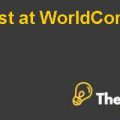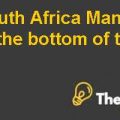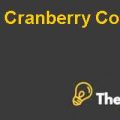Summary
The case introduces Dimensional Fund Advisors, an investment firm established in 1981 by Booth and Rex Sinquefield. The fund manager believed in the fundamental concept that the stock market was efficient, where some investors reliedon luck that the companies they invested in outperforms others in the market,but it wouldn’t be necessary that they would profit every time through their investments in various stocks. Furthermore, the founders also believed in basing investments on sound academic research and on the ability of skilled traders to generate profits even from passive investments. Hence, the investment firm based its investment strategies on its core beliefs that would differentiate it from competitors in the highly diverse and competitive investment market. In addition to this, the firm had worked close with prominent academics such as, Eugene Fama and Kenneth French, who have contributed towards the development of their investment strategies. Initially, the firm invested in small stock funds in an attempt to gain from the excess performance of small stocks in the market also known as size affect. Later, the firm invested towards value strategies, in an attempt to mix its offerings,in which, various academic researches depicted the tremendous performance of value stocks around the world. Therefore, it can be evaluated that, the firm had experienced tremendous growth in the past despite in stellar growth in 1990s, in which, its assets under management, had enhanced from $8billion in 1991 to around $40 billion in 2002, while its value stock had been performing well in the market. Similarly, the firm had experienced significant growth in its investor’s base and the management of the firm was looking for new ways to add value towards the investors. This, in turn, would further enhance its image in the market and allow the firm to secure significant shares, while effectivelycompeting with its competitors in the market.
Describe the Philosophy and business strategy of DFA. What sort of market behavior are they counting on? What types of customers do they sell to and how do they distribute their products? What is DFA’s View on Efficient markets?
It can be evaluated from the case that, the business strategy and philosophy of DFA was to rely heavily on academic research for its investment strategies and efficient market behavior. Furthermore, the firm invested in those stocks with market capitalization rate lower than a cutoff point set by the 20% of all NYSE. The firm invested in two types of stocks including small stocks and value stocks. Where, the stocks were selected based on the paper published by French and Fama. The stocks with high book to market ratio (BE/ME) were considered value stocks and those with low Book to market ratio (BE/ME) were considered growth or small stocks. Furthermore, the firm kept two portfolio namely SMB (Small-minus-big) in which, the small stocks were kept with Shorted big stocks and HML (High-minus-low) in which, the value stocks were kept with long and shorted growth stocks. These portfolios were offered to the customers available in the market,which, in turn, had enabled the firm to record tremendous growth over the years and enhance its investor’s base.....................
This is just a sample partical work. Please place the order on the website to get your own originally done case solution.










